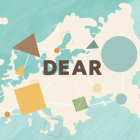SOLIDAR Foundation Paper on Global Citizenship Education and Democratic Participation in Europe
This study confirms that Global Citizenship Education (GCE) increases young people’s trust in democracy and boosts political participation. It highlights the essential role of these GCE's principles:
- Hands-On Learning: practical experience in democratic participation, like school projects or community initiatives, builds lifelong civic skills.
- Whole-School Approach: Schools that emphasize democratic values across all activities, from curriculum to school culture and governance, see the best outcomes in fostering civic engagement.
- Supporting Marginalized Students: Citizenship education is particularly impactful for learners from underrepresented backgrounds, helping to close gaps in political engagement.
The paper also calls for a unified EU approach to GCE - to enhance quality and consistency across Member States. It recommends that EU programmes like Erasmus+ (and DEAR) further support teacher training, and enhanced collaboration with institutions like the Council of Europe - like the EU DEAR-funded iLegend project. Digital Citizenship Education is playing a fast-growing role, it underlines. As political engagement increasingly moves online, GCE must include a digital dimension to prepare learners for active citizenship in digital spaces.
Solidar also emphasizes the importance of integrating GCE in teacher training across all levels of education:
- Preparing Teachers for Effective GCE: For educators to handle complex topics and support a safe and inclusive learning space, GCE must be integral to both pre-service and in-service teacher training.
- GCE in vocational education and training: providing GCE to VET learners is crucial for ensuring their political engagement, and more representative democracy.
Last but not least, it points to the need for continued reliable, long-term research into GCE’s impact - to further guide effective policies.
Global Citizenship Education is designed to build the competences needed for democratic participation, teaching people about their roles as active, informed citizens within both local and global communities. This education strengthens trust in democratic institutions and encourages (young) people to be involved in shaping the future of the EU.
For interactive browsing of the key findings, check out the "policy pill", which highlights the current democratic challenges, the impact of GCE, current GCE policies and Solidar's recommendations.

Log in with your EU Login account to post or comment on the platform.